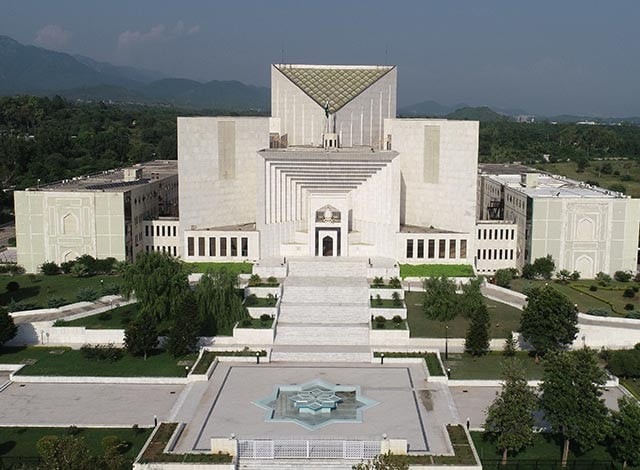'Wilful absence of govt servants can't be treated lightly'
SC warns leniency in ex-Pakistan leave cases could encourage misconduct

The Supreme Court has held that the wilful absence of government servants, or their travel without prior approval of ex-Pakistan leave, cannot be treated lightly.
It warned that if the act of wilful absence or leave without sanction or travelling without the approval of ex-Pakistan leave is treated lightly, it will become a hobby for wilful absentees rather than an act of misconduct.
The apex court ruled this in a six-page judgment – penned by Justice Muhammad Ali Mazhar – while hearing a petition filed by the Punjab government against a decision by the Punjab Service Tribunal.
According to the facts of the case, the disciplinary proceedings were initiated against the law officer on July 22, 201,3 under the Punjab Employees Efficiency,
According to the case facts, disciplinary proceedings were initiated against a law officer on July 22, 2013, under the Punjab Employees Efficiency, Discipline, and Accountability Act, 2006.
The charges included wilful absence from duty from June 4, 2013, to June 23, 2013, proceeding abroad to Saudi Arabia during the period of absence without obtaining ex-Pakistan leave and submitting a bogus medical certificate to claim medical leave, despite being in Saudi Arabia at the time.
After conducting a regular enquiry, the respondent was awarded the major penalty of reduction to a lower post, of assistant district attorney (BS-17), from his original post of deputy district attorney (BS-18) for four years by the competent authority on October 21, 2013.
The respondent appealed to the department, but the appeal was rejected on May 30, 2016, and he subsequently filed a service appeal before the tribunal, which was allowed.
A three-judge bench of the apex court, led by Justice Aminuddin Khan, heard the matter.
The judgment notes that even if the competent authority had treated the period of absence as extraordinary leave without pay, it does not mean that the respondent should be exonerated from the charges.
"If it is, then each and every wilful absence case may be treated in a similar manner and the period of absence may be converted into extraordinary leave without any punishment," the ruling read.
The judgement said in the semblance of this course of action, the competent authority would be debarred never endingly from imposing any punishment on account of wilful absence.
It further noted that the competent authority ought to give a clean slate, despite the charge of serious misconduct, with a simple conversion of a period of absence into extraordinary leave without pay, which will in fact make the entire disciplinary action redundant, which is not the spirit of law.
"Seeing as the learned tribunal passed the order without touching upon the merits of the case, it could not advert to the inquiry proceedings and inquiry report with recommendations where the charges were proved against the respondent beyond any shadow of doubt and he was rightly punished by the competent authority, which punishment does not deserve any variation."



1725254039-0/Untitled-design-(24)1725254039-0-208x130.webp)















COMMENTS
Comments are moderated and generally will be posted if they are on-topic and not abusive.
For more information, please see our Comments FAQ